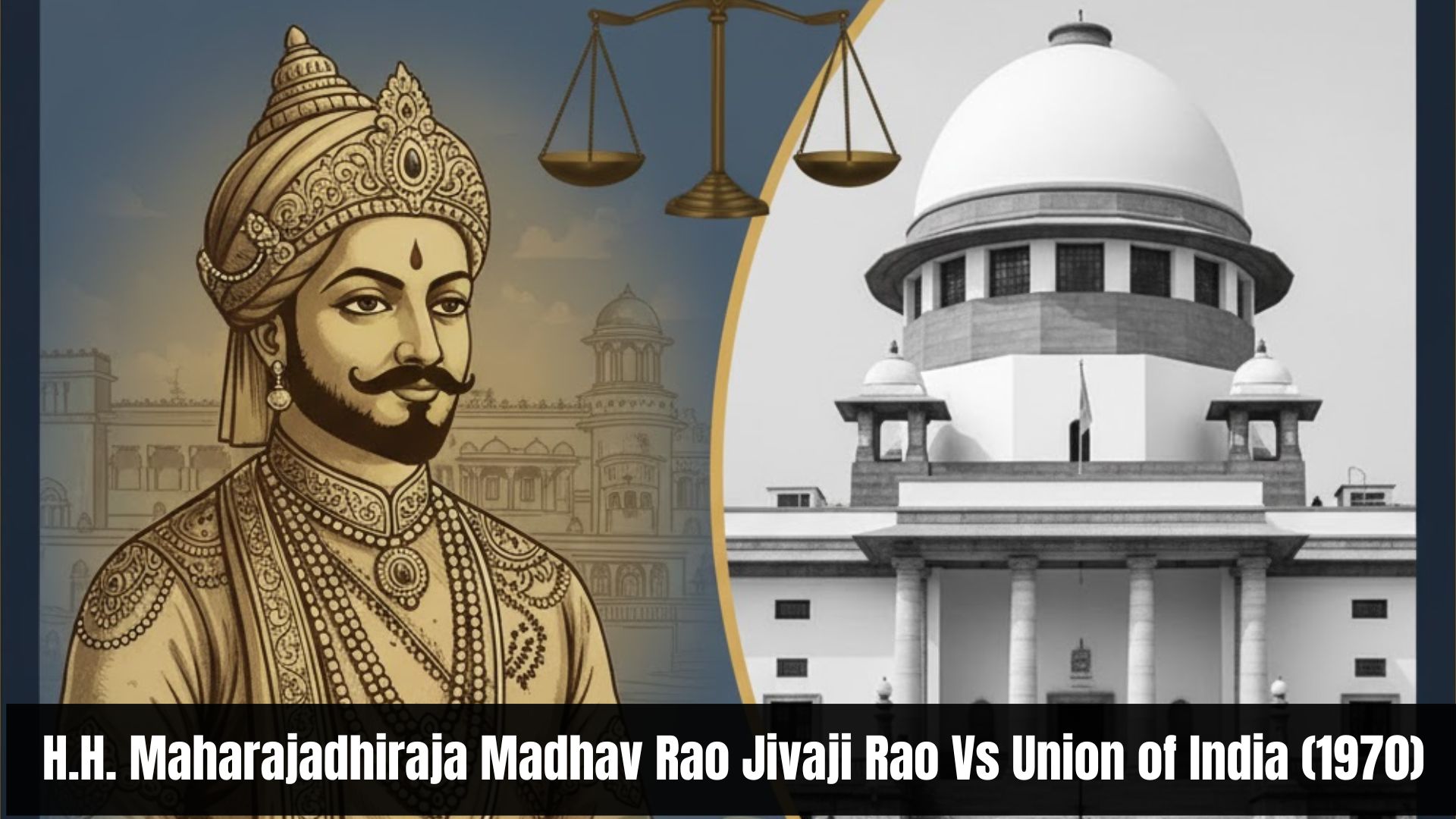
H.H. Maharajadhiraja Madhav Rao Jivaji Rao Scindia Bahadur of Gwalior and Others (Appellant) Vs Union of India (1970)
(1970) 12 SC CK 0016
In The Supreme Court of India
Case No : Writ Petitions No's. 376 to 383 of 1970.
Date of Decision : 15-12-1970
Bench : Full Bench
Hon'ble Judges : M. Hidayatullah, C.J ; Vishishtha Bhargava, J ; S. M. Sikri, J ; K. S. Hegde, J ; J. M. Shelat, J ; J. C. Shah, J ; I. D. Dua, J ; G. K. Mitter, J ; C. A. Vaidyialingam, J ; A. N. Ray, J ; A. N. Grover, J
Advocates : N.A. Palkhivala, M.C. Setalvad, B.G. Murdeshwar, R. Gopalkrishnan, O.C. Mathur (for Appellant), Niren De, S.T. Desai, S.P. Nagar, R.S. Dhebar, Jagadish Swarup (for Respondent)
Final Decision : Dismissed
Citations : AIR 1971 SC 530; (1971) 1 SCC 85; (1971) 3 SCR 9
[Judgment Source] https://www.courtkutchehry.com/Judgement/Search/AdvancedV2?docid=272355
Facts of the Case
On 6 September 1970, the President of India issued orders under Article 366(22) derecognising several former rulers of Indian States, including the Ruler of Gwalior. These orders led to immediate stoppage of privy purses and discontinuation of privileges. Several rulers filed writ petitions under Article 32 challenging these orders as unconstitutional, mala fide, ultra vires, and void. They sought restoration of recognition, payment of privy purses, and continuation of privileges as per covenants and merger agreements.
Law Points Raised
1. Whether the President had the authority under Article 366(22) to unilaterally derecognise rulers.
2. Whether such derecognition and cessation of privy purses violated Articles 14, 19(1)(f), 21, 31(1) & (2), 362, and 363.
3. Whether covenants and merger agreements were enforceable after the Constitution came into force.
4. Whether Parliamentary or Constitutional amendment was required to withdraw recognition and privy purses.
Acts / Provisions / Articles Referred
Constitution of India — Articles 4, 14, 19(1)(f), 21, 31(1), 31(2), 51(3), 53, 61, 73, 74(2), 112, 113, 114, 143, 278, 291, 295, 330, 332, 341, 342, 362, 363, 366(15), 366(22), 409
Government of India Act, 1935 — Sections 5, 6
Indian Independence Act, 1947 — Sections 1, 8(2), 9
Civil Procedure Code, 1908 — Sections 60(1), 85, 86, 87A, Order 21 Rule 46
Criminal Procedure Code, 1898 — Sections 197, 197A
Judgements Referred
White Paper on Indian States (historical context) and relevant constitutional history regarding integration of princely states. The Court referred to precedents interpreting Articles 291, 362, and 363.
Obiter Dicta
Recognition of rulers and payment of privy purses were political decisions embedded in the constitutional scheme and not justiciable once covered under Article 363.
Ratio Decidendi
The President’s power under Article 366(22) was valid, and Article 363 barred judicial review of disputes arising out of covenants and merger agreements. The cessation of privy purses and derecognition of rulers did not violate fundamental rights as these privileges were political in nature.
Final Ruling
Petitions dismissed. The Presidential orders derecognising rulers were upheld. No relief granted to petitioners.
Summary:
This landmark judgment clarified that the derecognition of former rulers and cessation of privy purses were within the constitutional powers of the President under Article 366(22) and immune from judicial review under Article 363. The Court treated such matters as political in nature, beyond the scope of fundamental rights enforcement.
[Judgment Source] https://www.courtkutchehry.com/Judgement/Search/AdvancedV2?docid=272355